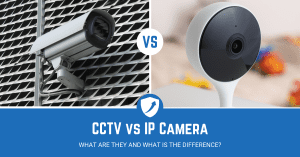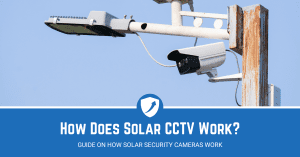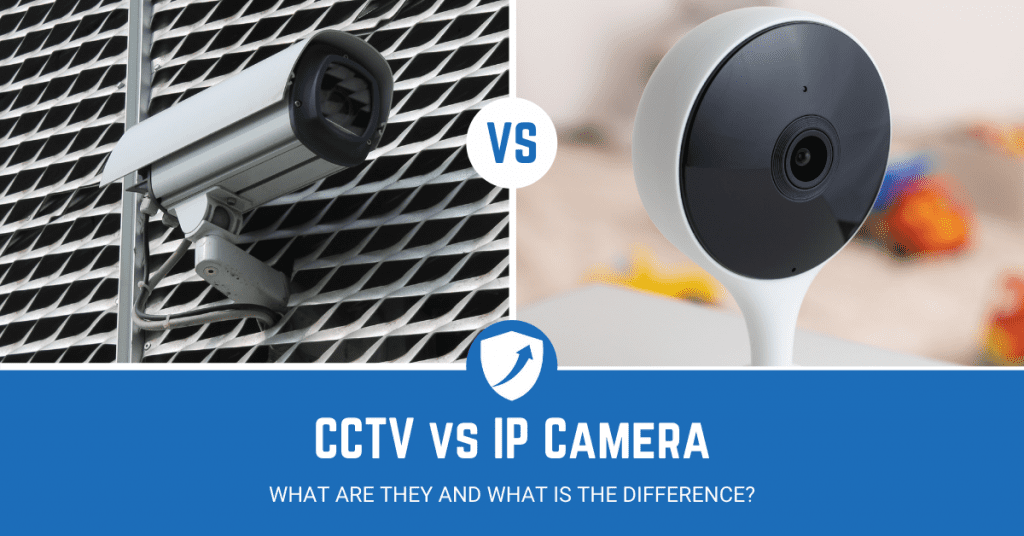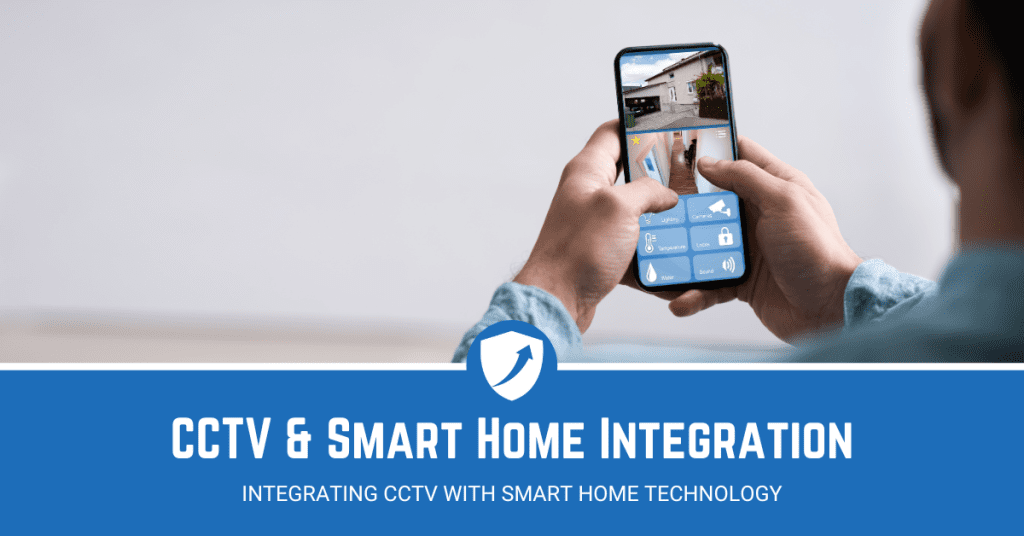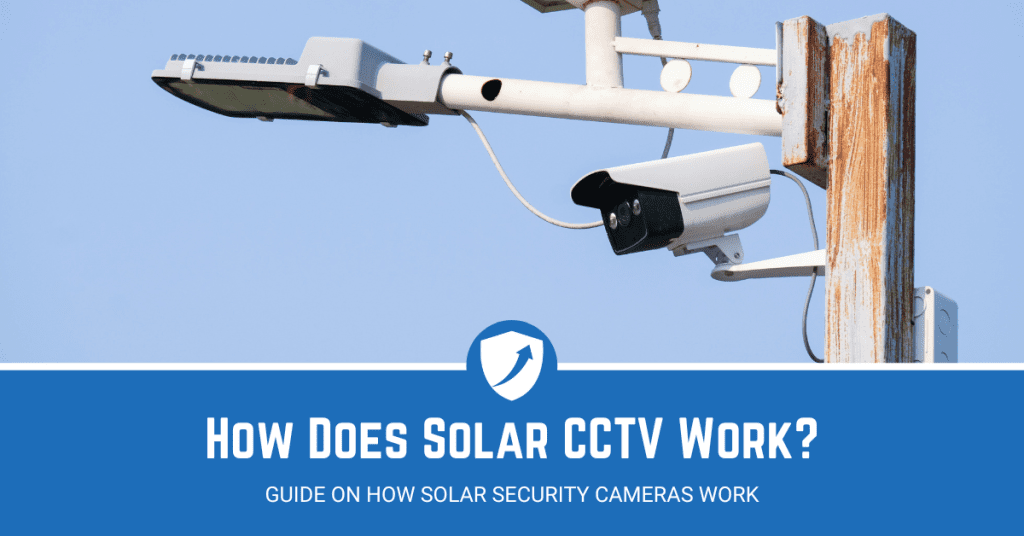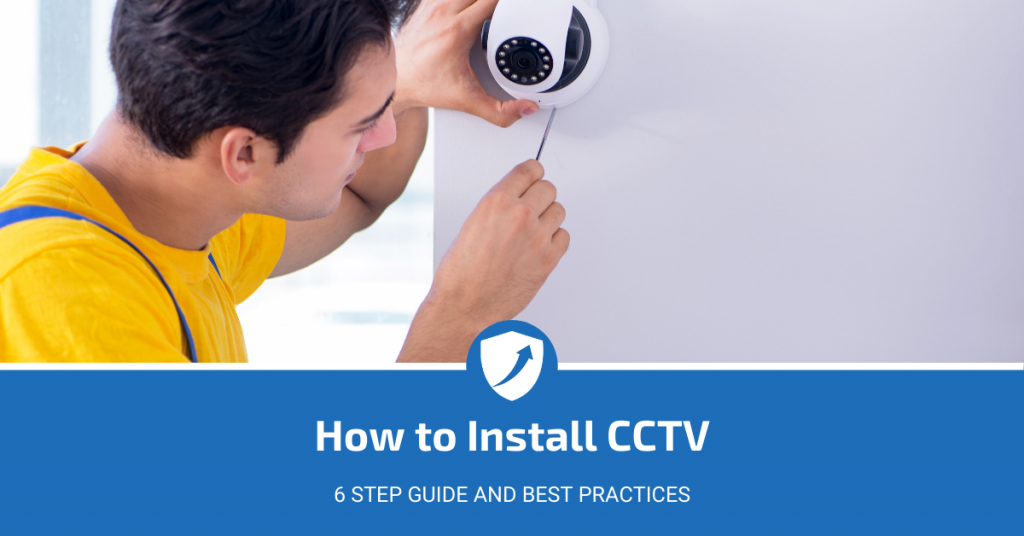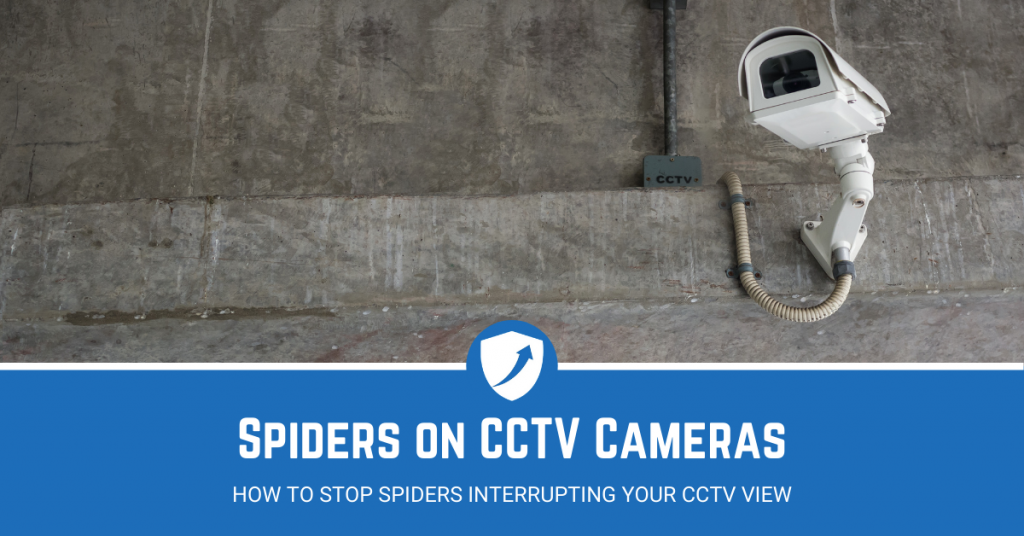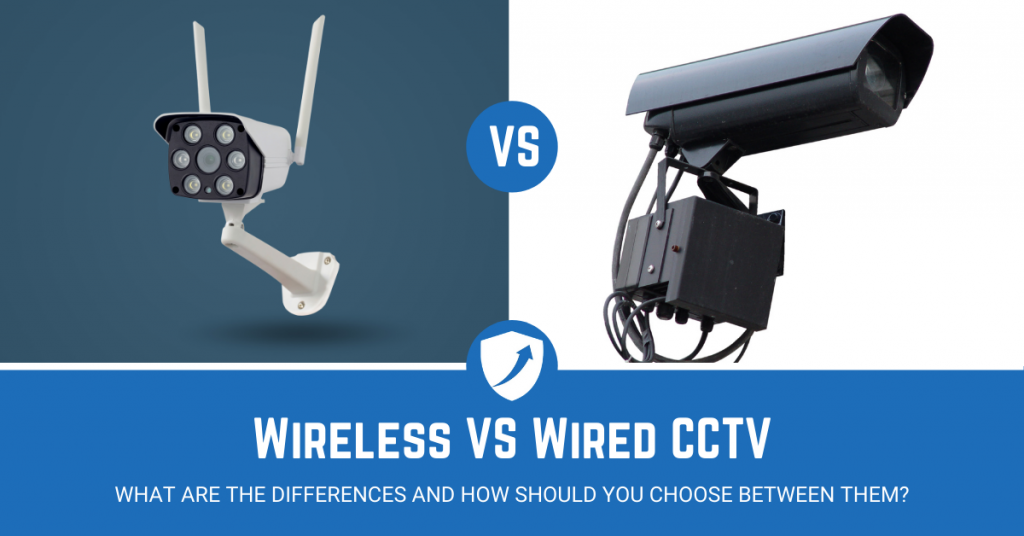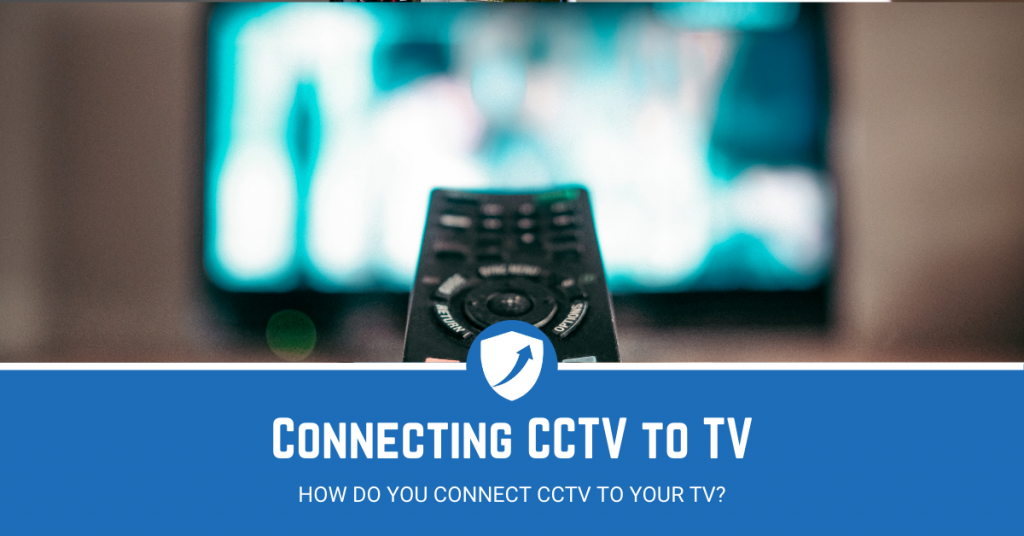In today’s world, home security is not a luxury but a necessity.
When it comes to securing your home, one of the primary tools in your arsenal is the CCTV camera.
While there are various types of CCTV cameras to choose from, the focus of this in-depth guide is to explore the key differences between dome and bullet cameras.
Whether you’re leaning towards a dome camera for your cozy indoor settings or a rugged bullet camera for outdoor surveillance, this article aims to educate and guide homeowners like you in making an informed decision.
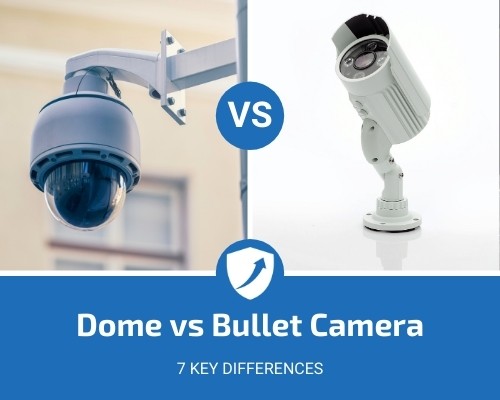
What to Expect:
- Features of dome and bullet cameras
- Real-world examples
- Expert insights
- How to choose based on your specific needs
What's in this Guide?
Types of CCTV Cameras
Before diving into the nitty-gritty of dome vs bullet camera, it’s essential to have a basic understanding of the types of CCTV cameras available in the market.
- Fixed Cameras: Often used in retail settings.
- PTZ Cameras: Pan-tilt-zoom cameras for broader area coverage.
- Hidden Cameras: For discreet surveillance.
- Dome Cameras: Popular for indoor settings.
- Bullet Cameras: Commonly used for outdoor surveillance.
From this list, dome cameras and bullet cameras emerge as top choices for home security, making them worthy of a detailed comparison.
What Are Dome Cameras?
Dome cameras are named for their dome-shaped housing, designed to make them unobtrusive but visible. These cameras are commonly used in indoor settings like retail stores and offices.
Features
- Wide-angle lens
- Vandal-resistant features
- Often come with night vision
- Discreet form factor
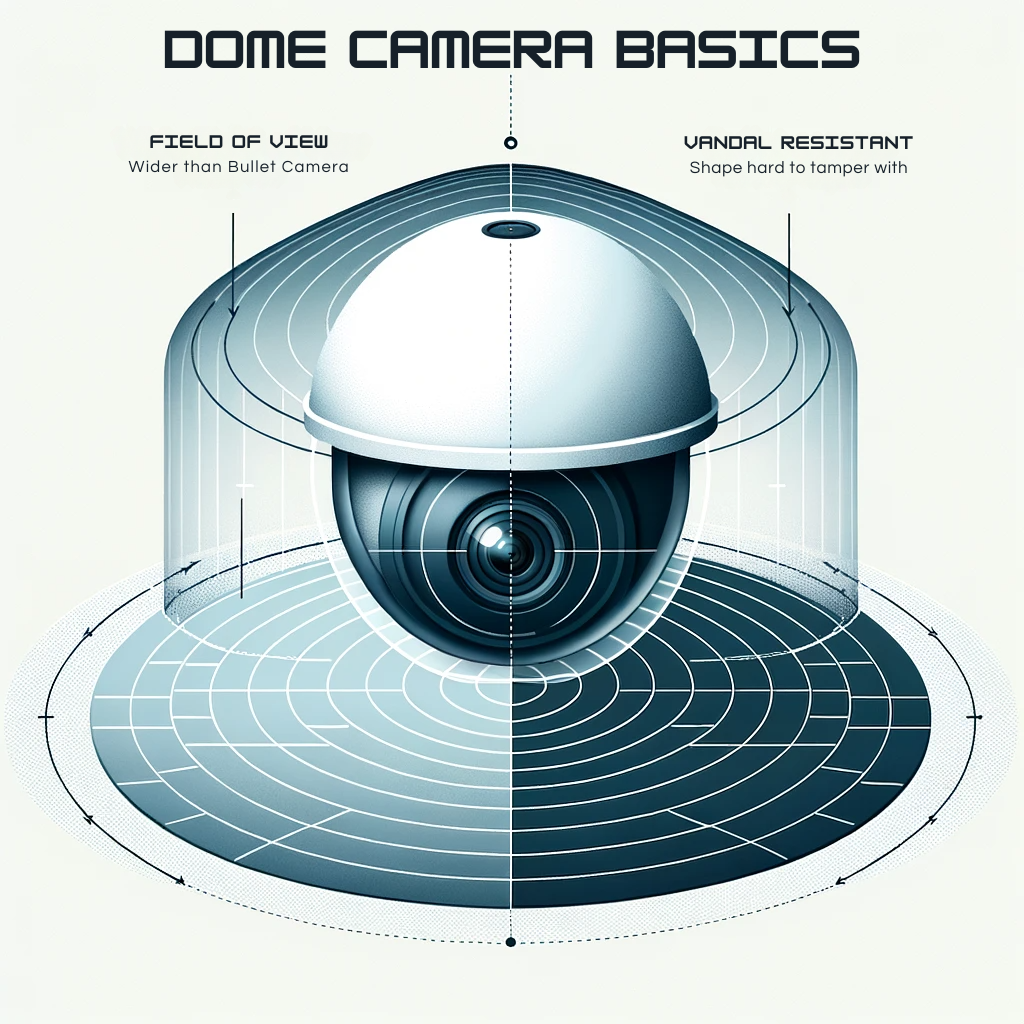
Use Cases
- Indoor surveillance
- Areas requiring low profile monitoring
- Retail stores
- Public spaces
Pros and Cons
Pros
- Sleek Design
- Hard to tamper with
- Wide field of view
Cons
- Limited range
- Can be more expensive
Real-life Example: Dome Camera in a Residential Area
One of our network’s homeowners found that a dome camera perfectly suited his needs for indoor security. The camera’s unobtrusive design blended well with the home’s aesthetics, while its wide-angle lens covered a large part of the living area.
Why Choose a Dome Camera?
- Aesthetically pleasing
- Suited for both indoor and outdoor cctv camera uses
- Difficult to tamper with due to its design
What Are Bullet Cameras?
As the name suggests, bullet cameras have a cylindrical shape, resembling a bullet. These cameras are a go-to for outdoor surveillance and are designed to be visible, acting as a deterrent to potential intruders.
Features
- Long-range lens
- Weatherproof housing
- Often include IR for night vision
Use Cases
- Outdoor CCTV remote monitoring
- Perimeter security
- Parking lots
Pros and Cons
Pros
- Long viewing range
- Easy to install
- Highly visible, acting as a deterrent
Cons
- Not vandal-proof
- Visible and can be tampered with
Real-life Example: Bullet Camera in a Home Garden
A homeowner in our network opted for a bullet camera to monitor their large backyard. The camera’s long-range capabilities provided extensive coverage, capturing even the farthest corners of the property.
Why Choose a Bullet Camera?
- Long-range viewing
- Suitable for bullet camera outdoor installations
- Easier to install compared to dome security cameras
Key Differences Between Dome and Bullet Cameras
When it comes to choosing between dome and bullet cameras, several key differences need to be considered.
Your final decision should factor in not just cost of camera installation, but also features, durability, and the specific needs of the area you want to monitor.
Physical Appearance
Shape and Size
Dome cameras typically have a discreet, compact design, ideal for blending into their surroundings.
On the other hand, bullet cameras are longer and more noticeable, often used as a visible deterrent to potential burglars.
| Comparison Aspects | Dome Cameras | Bullet Cameras |
|---|---|---|
| Shape | Rounded | Cylindrical |
| Size | Compact | Larger |
Installation Complexity
Dome cameras generally require a bit more effort in installation due to their design. Bullet cameras, with their simpler mount-and-go setup, often prove easier to carry out DIY CCTV installation.
“Dome cameras may need professional installation due to their design. Bullet cameras, however, can often be a DIY project for homeowners.”
Field of View
The field of view is a critical factor in your camera choice. Dome cameras usually offer a wider field of view, making them ideal for monitoring large open spaces.
Bullet cameras typically offer a more narrow view, focusing on specific areas or points of interest.
Key Points:
- Dome security cameras often provide a wider field of view.
- Bullet CCTV cameras are designed for targeted surveillance.
Durability and Vandal Resistance
Both dome and bullet cameras offer varying degrees of durability, crucial for long-term performance.
Material Quality
Bullet cameras are generally built with a robust casing designed to withstand environmental factors. Dome cameras often feature vandal-resistant designs, making them difficult to tamper with.
| Criteria | Dome Cameras | Bullet Cameras |
|---|---|---|
| Material Quality | Vandal-resistant | Weather-resistant |
| Durability | Moderate to High | High |
“For outdoor installations, you might lean towards bullet cameras for their robustness. However, dome cameras are an excellent choice for areas prone to tampering or vandalism.”
Cost and Budget Consideration
A significant factor in any purchasing decision is the cost. Both dome and bullet cameras come in various models that can fit into different budget segments.
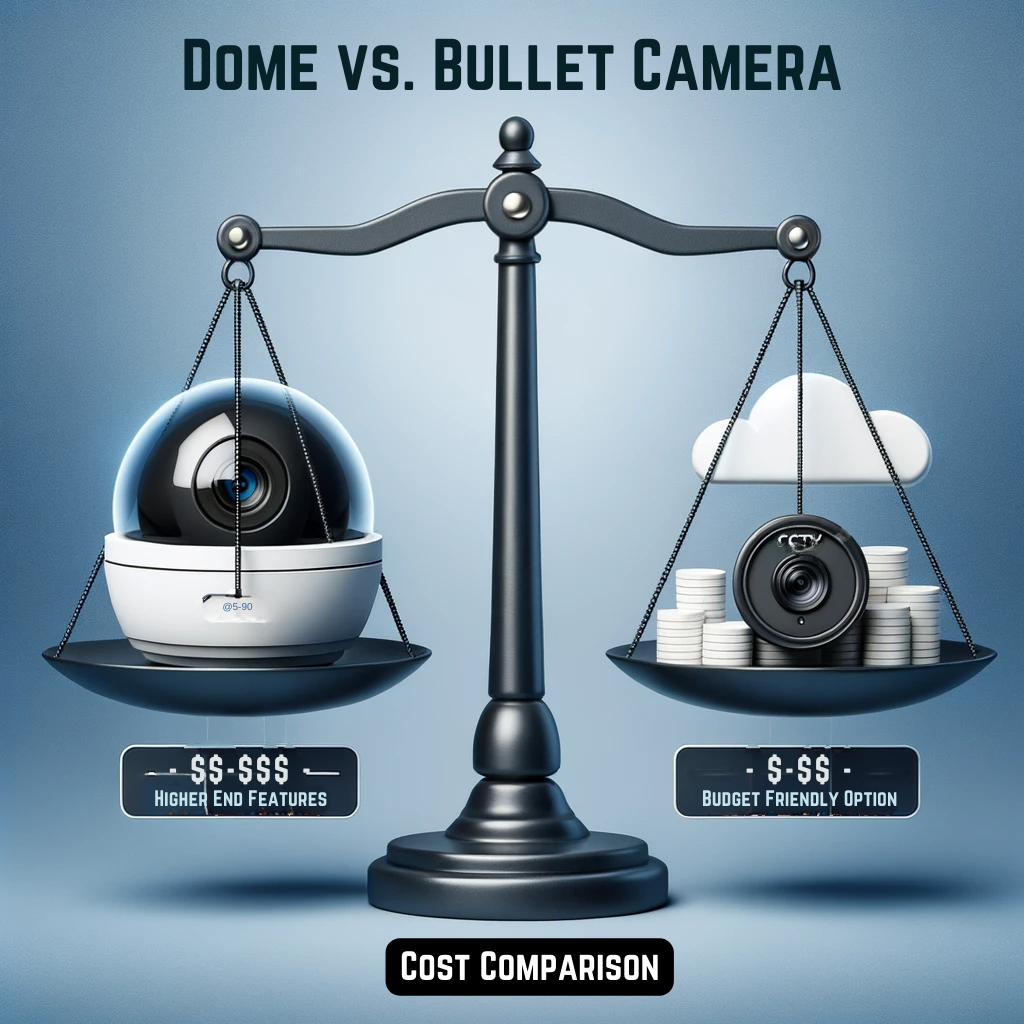
However, the overall cost will depend on the additional features you require, such as night vision or advanced motion detection.
| Criteria | Dome Cameras | Bullet Cameras |
|---|---|---|
| Average Cost | $$ – $$$ | $ – $$ |
| Additional Features | Often higher cost | More cost-effective |
Key Points:
- Dome cameras may come with higher-end features, pushing their cost up.
- Bullet cameras are generally more budget-friendly but may lack some high-end features.
How to Choose Between Dome and Bullet Cameras
Now that we’ve covered the key differences, how do you choose which camera is right for you?
Your Security Needs
The first step in choosing between a dome and bullet camera is to evaluate your specific security needs.
- Are you looking for general surveillance or targeted monitoring?
- Do you need indoor or outdoor cameras, or perhaps both?
Expert Insights: Tips From Industry Professionals
“In a residential setting, dome cameras often go indoors or in areas requiring a discreet presence. Bullet cameras are usually placed outdoors for perimeter security.”
Environmental Factors
Your environmental conditions also play a crucial role in camera selection.
- Weather Conditions: If you’re in an area with volatile weather, you might want a bullet camera with higher weather resistance.
- Indoor vs Outdoor: For indoor surveillance, the more discreet dome cameras are often preferable.
| Criteria | Dome Cameras | Bullet Cameras |
|---|---|---|
| Weather Resistance | Moderate | High |
| Indoor/Outdoor | Both | Usually Outdoor |
Consult with Professionals
Given the technical nature of CCTV camera installation, consulting with professionals is often recommended.
A detailed site assessment can help you determine the best spots for dome or bullet cameras, maximizing their efficiency.
Understanding the level of maintenance you’d need for your CCTV system is also crucial, and deciding whether this would need to be done by a professional or whether you could mitigate extra costs by following a simple CCTV maintenance plan yourself.
“Never underestimate the value of a professional assessment. Security experts can help you pinpoint the type and placement of cameras most beneficial for your specific needs.”
Conclusion: Making Your Choice
The dome vs bullet camera debate doesn’t have a one-size-fits-all answer.
Each has its unique benefits tailored to different needs and environments. Your final choice should be a well-considered decision based on multiple factors, including cost, durability, and the specific security challenges you face.
Whether you choose a dome camera for its discreet nature and wide viewing angle or a bullet camera for its durability and ease of installation, ensure that it aligns well with your overall security goals.
If this guide has piqued your interest and you’re looking to delve deeper into home security solutions, feel free to explore more in-depth articles on Upcoming Security.
We offer a plethora of information on everything from advanced CCTV functionalities to general home security tips.


